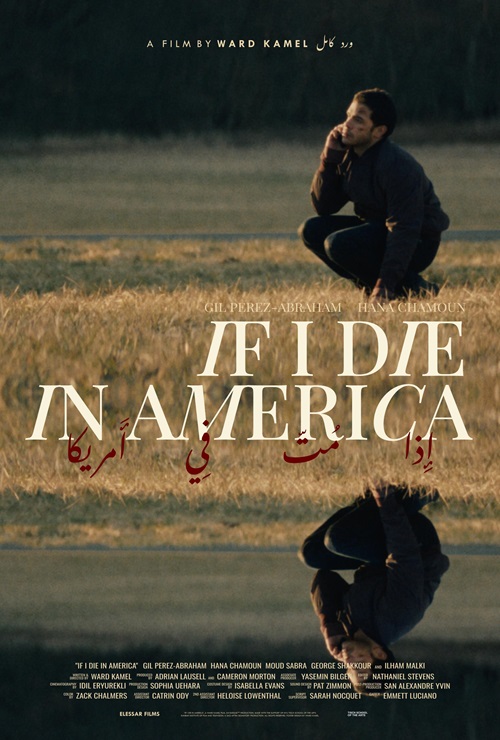By: Valerie Milano
Los Angeles, CA (The Hollywood Times) 6/29/24 – Grief is celebrated differently around the world, but at the core of it all, it is primarily an emotional process of reacting to the loss of a loved one through death. While funeral traditions around the world may differ greatly, the focus is on the internal intrapsychic process of the grieving individual.

In the Muslim world, tradition dictates that burial ought to occur within 24 hours of death.
“It’s a very hot region of the world, so that might have something to do with it,” said Ward Kamel, writer and director of the film “If I Die In America,” which screened at the Palm Springs International Shorts Festival this week.
In an exclusive interview with The Hollywood Times, Kamel, a Syrian-born filmmaker who lives in Brooklyn, New York, talked about Muslim burial traditions amid the “Muslim Ban,” and how he arrived at the story for his thought-provoking film about a queer man dealing with that tradition following the untimely death of his husband.
Click below to see our exclusive interview:
Kamel’s story really came from a personal place for him. He had moved to New York, but the ban kept him from his family for an exceedingly long time.
 “I didn’t see my family for six years,” he said. “And over those six years, at one point I started thinking, ‘I’m pretty young, knock on wood … what if I died out here?’ I had not seen my family in years and years, and it is sort of a morbid thought, but I couldn’t help but eventually get there, when you feel like you’re a little bit stuck in a place that, especially at the time, didn’t feel like home.”
“I didn’t see my family for six years,” he said. “And over those six years, at one point I started thinking, ‘I’m pretty young, knock on wood … what if I died out here?’ I had not seen my family in years and years, and it is sort of a morbid thought, but I couldn’t help but eventually get there, when you feel like you’re a little bit stuck in a place that, especially at the time, didn’t feel like home.”
Inspired by that “morbid thought,” Kamel said he began thinking about how it might unfold for a Muslim person to die halfway around the world and how Muslim tradition would play out.

“The idea really opened up when you consider that traditionally in Muslim burial rites, the burial ought to occur within 24 hours, if not sooner,” he said. “It’s really, really quick, there’s not much pomp and circumstance, so it’s supposed to happen the day of.”
“Obviously the mourning period lasts longer, but the burial itself is, for the lack of a better term rushed.”
Armed with that seed of an idea, Kamel said he started considering the logistics of something like that in his own situation, and how it might play out, particularly in the context of the ban.
“Considering I couldn’t leave, coupled with the fact I knew if I died, my family would want me buried under Muslim funeral rites, “he said. “The body would have to be shipped immediately, within the hour (of death).”

In his film, Manny’s immigrant husband, Sameer, passes away in an accident, and Manny is confronted by a representative of Sameer’s family urging him to sign the paperwork needed to ship the body back to Kuwait. Manny initially refuses, clinging to his rights as Sameer’s husband, while knowing that with every passing hour, Sameer’s family grows more infuriated.
The issue of Sameer being queer is the final twist of lime that makes “If I Die In America” a truly emotional ride for the audience. The conflict arising from being queer in the Islamic world is something Kamel said he deals with a lot in his work as a filmmaker. This was the last piece of the puzzle that really allowed him to unlock the story.
 After an emotional climax, spurred on by the family’s homophobic claim that Manny and Sameer’s marriage was merely a green-card arrangement, Manny comes to realize that his objections won’t change the fact that his husband died — try as he might, he cannot delay grief and mourning.
After an emotional climax, spurred on by the family’s homophobic claim that Manny and Sameer’s marriage was merely a green-card arrangement, Manny comes to realize that his objections won’t change the fact that his husband died — try as he might, he cannot delay grief and mourning.
“It’s pretty complex, but the dream is that you get really specific, and, in that specificity, there is a universality, because ultimately, we’re all people,” Kamel said, pointing out that despite the queer element, audiences should be able to identify with the story.
“If you can relate to a character’s struggle and they come off as a real person. Then at least in the sense that you’re both human beings, you can start identifying to that story,” he said.

“If I Die In America” stars Hana Chamoun, Gil Perez-Abraham, George Shakkour, Ilham Malki, and Molud Sabra. The film is from Elessar Films and was produced by Adrián Lausell Cabán, with cinematography by Idil Eryurekli.





